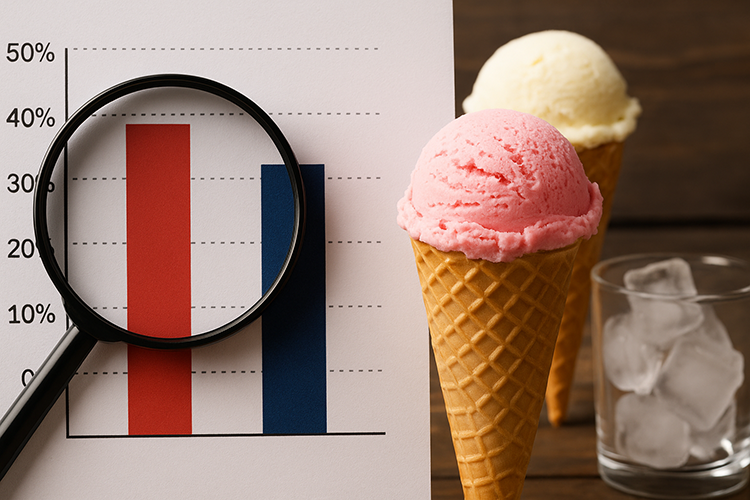Nearly half of ice cream and ice samples in Czech inspections fail hygiene tests
The Czech Agriculture and Food Inspection Authority (SZPI) reports that hygiene problems among ice cream sellers remain widespread, with nearly half of samples failing to meet safety standards. So far in 2025, 46 percent of tested scoop and draught ice creams have been rated unsatisfactory, continuing a trend observed in previous years.
Out of 146 ice cream samples inspected this year, 67 exceeded acceptable hygienic limits, according to SZPI spokesperson Pavel Kopřiva. Laboratory analyses found high levels of bacterial colonies, which can cause gastrointestinal problems. Inspectors noted recurring issues such as insufficient cleaning of machines, poor adherence to production processes, and inadequate staff training. A common malpractice involves sellers returning leftover ice cream to machines the following day instead of discarding it, leading to bacterial contamination.
The situation was no better for ice used in drinks. Of 53 samples examined, 30—57 percent—failed to meet standards. The main causes were poor hygiene practices and irregular disinfection of ice makers. Kopřiva emphasized that these problems have persisted over the long term without signs of improvement.
Inspectors typically target higher-risk establishments, though routine checks are also carried out at compliant businesses. Where violations are detected, authorities can ban equipment use, halt production, and require thorough sanitation followed by microbiological testing before sales may resume. Administrative proceedings for fines are also initiated against non-compliant operators.
Food safety concerns with ice cream are not unique to the Czech Republic. Similar issues have been reported across Europe. In Slovakia, the State Veterinary and Food Administration (ŠVPS SR) has also found high rates of hygiene violations in draught ice cream, with over 40 percent of samples failing in some regions in recent years. The European Food Safety Authority (EFSA) has repeatedly warned that inadequate cleaning of dispensing machines is one of the most common risk factors for bacterial contamination in frozen desserts and ice products.
While the SZPI stresses that its results are based on targeted, risk-based inspections rather than random sampling, the consistently high proportion of unsatisfactory findings suggests that many operators continue to underestimate the risks of poor hygiene in production, storage, and sales. According to food safety experts, maintaining strict sanitation routines and proper staff training remain essential for protecting consumer health.









